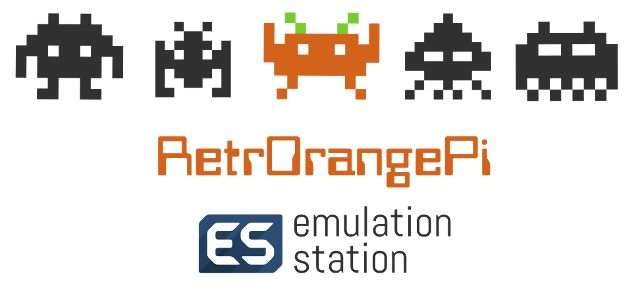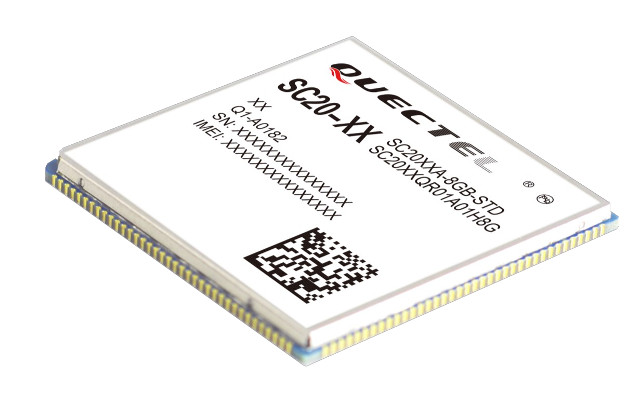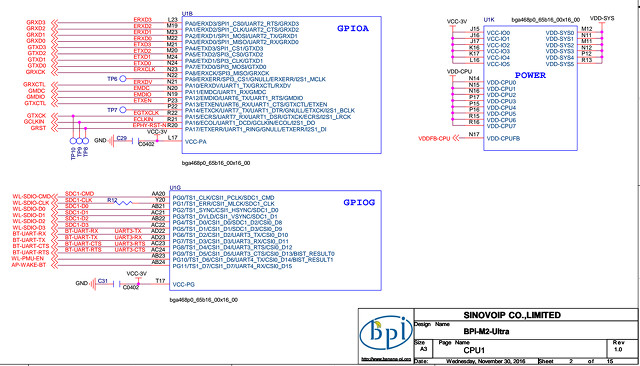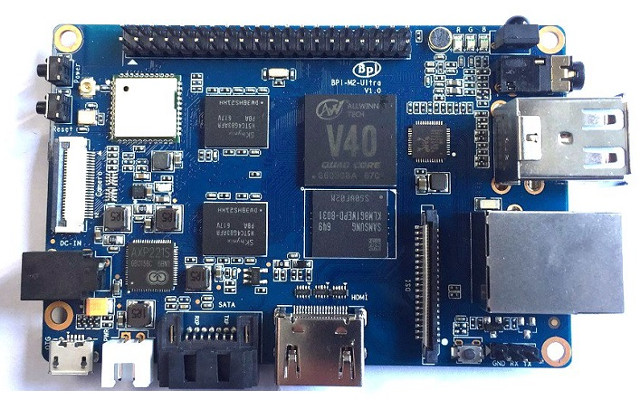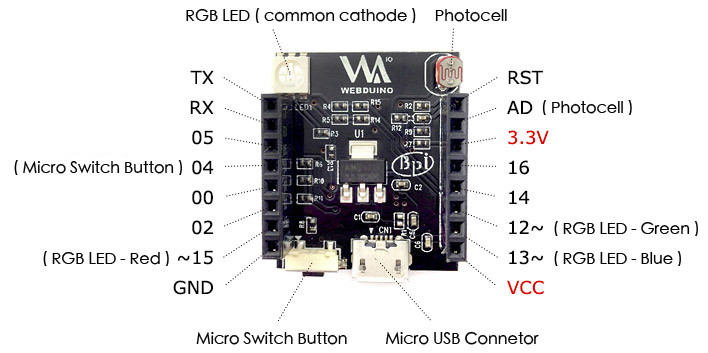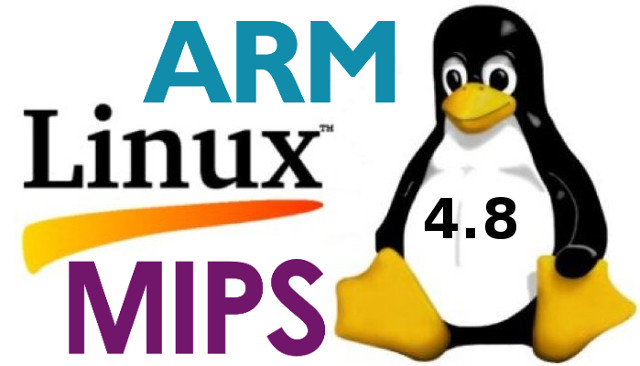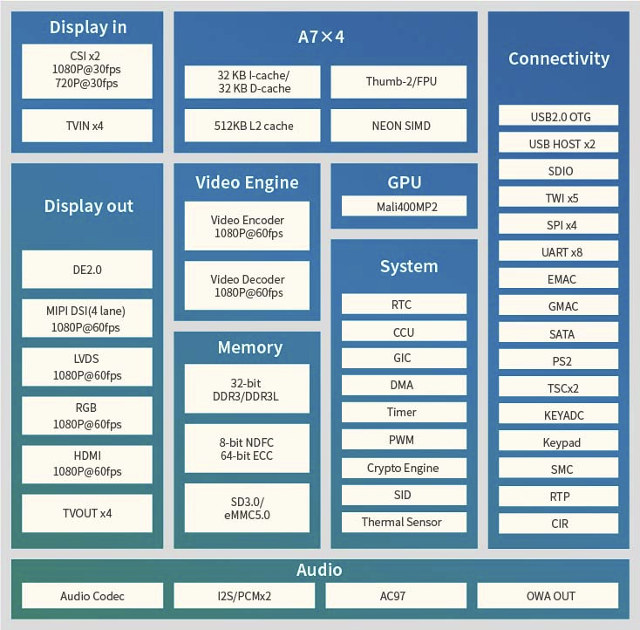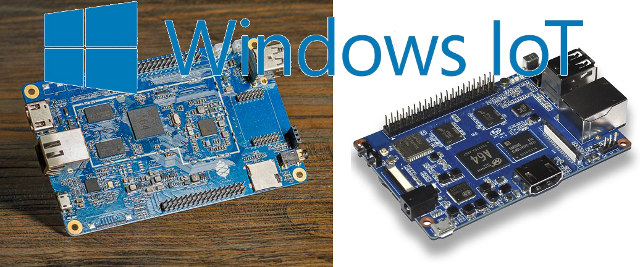RetrOrangePi is a Linux distribution based on armbian transforming Allwinner H3 boards – mostly Orange Pi boards, but also Banana Pi M2+ and NanoPi boards – into entertainment centers to play retro games, and watch/listen media files (videos/music) using Kodi. If you don’t have a development board, or would prefer a complete solution with casing and power supply, Beelink X2 TV box is also supported. The developers had been recently working on rectifying some GPL issues, and they have released RetrOrangePi 3.0 images right before Christmas. RetrOrangePi 3.0 changelog and key features: Full Armbian 5.23 Jessie Desktop version with kernel 3.4.113 (backdoors fixed) Slim version 1st release (less than 2 GB) coming soon OpenELEC (Kodi Jarvis 16.1) with CEC support by Jernej Škrabec RetroPie-Setup version 4.1 New Kodi Krypton beta6 version New emulationstation-ROPI branch forked from jacobfk20 with gridview, on screen keyboard with easy wifi config and storage check with […]
Quectel SC20 Smart LTE Modules with WiFi, BLE and GPS Run Android 5.1
Google may just have released Android Things operating systems for IoT applications, but its big brother – Android – has already gotten into some other IoT systems such as Quectel SC20 module powered by a Qualcomm processor and supporting LTE, WiFi, Bluetooth LE, and GNSS functions. Quectel SC20 comes in different flavors to cater for various markets, but all module share most of the same specifications: SoC – Unnamed Qualcomm processor System Memory – TBD Storage – 8GB flash Cellular Connectivity – FDD LTE, TDD LTE, TD-SCDMA, EVDO/DCMA, WCDMA, and GSM; antenna: MIMO 2×2, supports Rx-diversity Other Wireless Connectivity WiFi – 2.4GHz 802.11b/g/n (SC20-CE/-W); Dual band 802.11a/b/g/n/ac (SC20-E/-A/-AU/-J) Bluetooth 2.1+EDR/3.0/4.1 LE GNSS – GPS, GLONASS, and BeiDou Interfaces LCD – 4x lanes MIPI-DSI, 1.5Gbps each, HD (720p) @ 60fps Camera – MIPI-CSI, up to 1.5Gbps per lane, supports two cameras 2-lane MIPI_CSI for rear camera, up to 8MP 1-lane MIPI_CSI […]
Banana Pi BPI-M64 & BPI-M2 Ultra Boards PDF Schematics Published
SinoVoip has recently released PDF schematics for both of their Banana Pi boards, namely BPI-M64 board powered by Allwinner A64 processor, and BPI-M2 Ultra board based on the latest Allwinner R40 SoC with an on-chip SATA interface. For most boards on the market, this should not be news, but SinoVoip does not always release schematics in a timely manner, so you may want to be noticed when it happens: BPI-M64 schematics – https://bananapi.gitbooks.io/bpi-m64/content/en/bpi-m64schematicdiagram.html BPI-M2 Ultra schematics – https://bananapi.gitbooks.io/bpi-m2-ultra-open-source-single-board-computer/content/bpi-m2ultraschematicdiagram.html The clear benefit of BPI-M2 Ultra is the presence of a SATA connector NOT implemented via a slow USB 2.0 to SATA bridge, but instead directly through the SATA interface of the R40 quad core processor. As for BPI-M64 ($46), it can be compared to Pine64+ with 2GB RAM and a WiFi module ($39), and despite the higher price it does come with some benefits like adb over OTG working, it is […]
Banana Pi M2 Ultra Allwinner R40 Development Board with SATA & GbE Sells for $46
Allwinner A10 and A20 processors have been quite popular in the past since they could handle Fast or Gigabit Ethernet and SATA natively, included decent multimedia capabilities, and were found in low-cost hardware such as Cubieboard 2 or MeLE A1000. Since then we’ve had a few boards with SATA using newer and faster processors without SATA IP, meaning it was usually implemented using a USB 2.0 to SATA bridge leading to mediocre to average performance depending on the implementation and selected bridge. Allwinner R40 is the successor of Allwinner R20 with a faster quad-core Cortex A7 processor, but keeping Gigabit Ethernet, SATA, and most features of its predecessor. The good news is that Banana Pi has now launched the promised M2 Ultra development board based on the new processor for $45.80 + shipping on Aliexpress (Total for me: $48.35). Banana Pi M2 Ultra specifications: SoC – Allwinner R40 quad-core ARM […]
Webduino Smart ESP8266 Board is Designed to be Programmed via Websocket and Blockly Editor
Webduino Smart board reminds me of Witty ESP8266 board with its RGB LED and photocell sensor, but the design is a little different, and does not come with an extra USB to TTL board, as it’s designed to be programmed over the air using Blockly Editor. Webduino Smart specifications: WiFi Module – AI Thinker ESP-12F module with Espressif ESP8266 WiSoC Connectivity – WiFi 802.11 b/g/n 2x 8-pin headers with GPIOs, ADC (Connected to Photocell), UART, VCC, 3.3V, GND, and Reset. USB – 1x micro USB port for power Misc – Photo resistor, RGB LED, micro switch button for firmware upgrade (connected to GPIO 4) Dimensions – 3 x 2.5 cm (See comparison to AA and AAA batteries below) While Witty board was mostly targeting mainland China market with all documentation in Chinese, Webduino Smart does have some documentation in English, and is made by Banana Pi team (SinoVoIP). The default […]
Linux 4.8 Release – Main Changes, ARM & MIPS Architectures
Linus Torvalds has officially released Linux 4.8 last Sunday: So the last week was really quiet, which maybe means that I could probably just have skipped rc8 after all. Oh well, no real harm done. This obviously means that the merge window for 4.9 is open, and I appreciate the people who already sent in some pull requests early due to upcoming travel or other reasons. I’ll start pulling things tomorrow, and have even the most eager developers and testers hopefully test the final 4.8 release before the next development kernels start coming 😉 Anyway, there’s a few stragging fixes since rc8 listed below: it’s a mixture of arch fixes (arm, mips, sparc, x86), drivers (networking, nvdimm, gpu) and generic code (some core networking, with a few filesystem, cgroup and and vm things). All of it pretty small, and there really aren’t that many of them. Go forth and test, […]
Allwinner R40 Quad Core ARM Processor, Successor of Allwinner A20, Supports SATA & Gigabit Ethernet
One of the most common complaints I get from readers when I publish news about new ARM processor is “Why didn’t they include SATA?”. So far Allwinner A20 is the only really low cost ARM processor that includes a SATA port, but it’s been released a few years, and its dual core Cortex A7 processor is getting old. We’ve been hearing rumors about an upgraded version for one or two years with Allwinner A40 or more recently Allwinner A20E, and finally the company has now published details about Allwinner R40 processor on their revamped website, which they claim to be the successor of Allwinner A20. Allwinner R40 key specifications: CPU – Quad-core ARM Cortex-A7 Processor GPU – Mali-400 MP2 GPU Memory I/F – 32-bit DDR3/DDR3L/LPDDR2/LPDDR3 Storage I/F – 8-bit NAND flash, SD3.0, eMMC 5.0, and 1x SATA Networking – 2x MAC: 1x EMAC (10/100M Ethernet), 1x GMAC (Gigabit Ethernet) Display […]
Allwinner A64 based Pine A64 and Banana Pi M64 Boards Can Now Run Windows 10 IoT Core
Windows IoT is a version of Windows 10 that’s optimized for smaller devices with or without a display, and was fist released for Raspberry Pi 2 and MinnowBoard MAX. Since then a few more boards are now officially supported, including DragonBoard 410c, and Raspberry Pi 3. But there’s been some recent developments as two Allwinner A64 64-bit ARM boards are now supported according to two wiki entries (here and there) explaining how to run a simple Csharp sample on Windows 10 IoT Core on either Banana Pi M64 or Pine A64 boards. The guide shows how to configure Azure IoT Hub, register the IoT device, and build and deploy Azure IoT SDK on the board. But basically if all you want to is to run Windows IoT core on either board, you’ll need to download either: Windows 10 IoT Core for Banana Pi M64: Windows10IoT_BPI-M64.ffu (Link removed as Microsoft does […]


